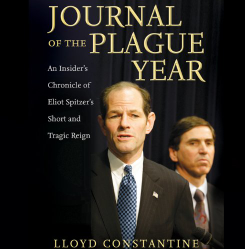The parents of Trayvon Martin, the teenager shot dead in Sanford, Fla., the night of Feb. 26 by George Zimmerman, a gated community “watch volunteer,” were dignified and clear about what they demanded from Florida’s system of criminal justice. All they asked for was an arrest and that justice be done.
Because of Florida’s “stand your ground” law, the authorities initially declined to arrest or press any charges against Zimmerman. He told them that when he killed Trayvon he had feared for his own life. Zimmerman’s “state of mind” satisfied the standards of Florida’s law, setting up not only his defense but complete immunity from being prosecuted or even sued civilly for the killing.
The disturbing, heartbreaking nature of the events and the extraordinary campaign that brought it to wide public scrutiny eventually led to a U.S. Department of Justice inquiry, a review of SYG and its application by Florida criminal justice authorities and Zimmerman’s belated arrest and indictment for second-degree murder.
Regrettably, many people already have a strong opinion about what happened — that Zimmerman is a murderer or that he was justifiably defending himself – — before a single piece of evidence has been presented in court.
Certainly, I don’t know what actually happened, not does anyone else who wasn’t there that night. But even without that knowledge, which a trial should provide, it’s clear to me that at least one thing needs to come from this case: A killer needs to be taken off the streets.
The menace is Florida’s SYG law and the similar statutes enacted in 20 other states. Florida’s law was written with heavy participation of the National Rifle Association, which also lobbied to make Florida one of the easiest states in which to buy and conceal a handgun. That’s a deadly legal mixture. According to an analysis compiled by the Miami Herald, Florida’s SYG law has been invoked at least 130 times since it was enacted in 2005.
In more than half of these cases, the people standing their ground killed someone whom they claimed caused them to fear bodily harm. Also, in more than half of these cases the people invoking SYG were not charged with a crime, were granted immunity from prosecution or had the charges dismissed because of the SYG shield.
SYG laws are an extension and gross distortion of an important, long-standing principle of Anglo-American common law, that one can use deadly force to protect oneself and other inhabitants of your home when it is forcefully invaded. By extending the zone for permissible use of deadly force to an entire state, Florida has converted itself into a Dodge City theme park. Florida’s SYG has been successfully invoked by drug dealers, gang members and those firing guns in the midst of “road rage” incidents.
Florida’s SYG extends well beyond protecting oneself from “great bodily harm” and immunizes the use of deadly force if the shooter “reasonably believes that such force is necessary” to prevent harm to any other person “or to prevent the imminent commission of a forcible felony,” including unlawful and forcible entry of another person’s “dwelling” “tent” or “occupied vehicle.” Images of Gunfight at the O.K. Corral, Death Wish and other shoot-em-up movies come to mind.
I have a strong preference for another specific outcome in this tragic case: that Zimmerman is immunized from prosecution. It is too late for Trayvon, whose young and promising life has been snuffed out. Zimmerman does not appear to be much of a threat to anyone other than himself in the future.
If the facts show that what went down that night was vigilante justice born of suspicion, made possible by the gun Florida invited Zimmerman to carry and SYG encouraged him to shoot, the smart outcome of this case would be that Florida, the 20 other states with SYG statutes, and America as a whole will start coming to their senses about the destructive nature of our national romance with packing handguns, and, all too often, firing them in a moment of fear.
Lloyd Constantine is a Manhattan lawyer. He was a senior adviser to Gov. Eliot Spitzer and is author of several books, including “Journal of The Plague Year,” about the Spitzer administration.


0 Comments